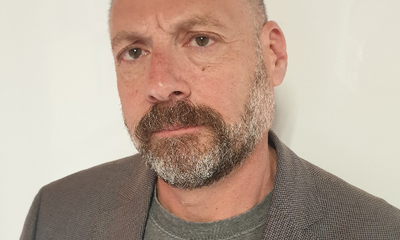
Featured Item

Helping our kids navigate the trauma
Published
7 months agoon
From horrifying newscasts to disturbing videos and images online, the stories out of Israel over the past few days have been nothing short of devastating. Whether our kids have been exposed to such stories and graphics or if they’re simply picking up on our distress, it’s important that we know how to guide them through the complex emotions they may encounter.
“We’re experiencing collective trauma,” says clinical social worker and logotherapist Carin Marcus. “We’re connecting around the collective of what’s happening in Israel, in our communities and among our people, either directly or indirectly.”
During a webinar held on 10 October for parents of children at South African Jewish schools, Marcus and clinical psychologist David Abrahamsohn offered tools for parents to engage meaningfully with their kids around the war in Israel.
“We’re holding that dual space of the ‘and’,” Marcus said. “Our hearts and minds are in Israel – we’re there, but we’re here. If the space we’re holding feels huge for us as adults, we wonder how our children are making sense of it.
“The preschool child has magical thinking, so they struggle with a concrete understanding of major concepts like war, fighting, and terrorism,” Marcus said. “They can’t make sense of these ideas, so we need to be aware that the words they’re hearing are often not landing in a grounded place in their understanding.”
However, they are aware that something big is wrong in the world around them. This is because they are attuned to us, their parents, teachers, and carers, and our emotional response to what we’re seeing. In turn, they demonstrate a stress response, with high degrees of anxiety, worry, and over-clinginess.
This may manifest in separation anxiety or displaced fears of things like spiders, rain, or monsters. “They will also enact their fears through play,” Marcus said. “Listen out for themes that come up the playground, and ask them questions.” This creates a space for them to vocalise their feelings.
Primary school-aged children display more concrete thinking, she said. They are also exposed to more of the outside world. Amidst global calls to delete Instagram and TikTok from our children’s phones, which is a must for pre-primary and primary school kids, we need to be aware of what they’re watching.
“Our children will house a wide range of emotions, from sadness to deep and intense worry and anxiety, and sometimes even a sense of guilt for not feeling what they think they should be feeling,” said Marcus. They also struggle to identify and process their emotions, and often feel on edge. Concentration and focus may also suffer. Their feelings may also present as separation anxiety, sleeping difficulties, and nightmares. “We must reassure our children that they are ‘safe enough’, she said, and help them externalise the massive feelings they’re dealing with by asking them to voice or write down their concerns.”
When it comes to helping our children, there’s no one-size-fits-all approach. Each child and parenting style is different. Helping our children starts with examining how we’re responding and learning to regulate our emotions. “Our children are looking to us to see how we handle this, which is hard as we’re struggling too. Yet our children need to connect to us.
“We need to take whatever reactions our children have seriously,” she said. “Create a safe space for your children in which they can talk about what’s happening and their emotions around it.” We need to ask them what they’re seeing online, and give them permission to share this because misinformation is confusing and damaging. Let their questions guide us in terms of how much age-appropriate but clear information we share.
Normalise their fears, but also make room for them to feel disparate emotions. Maintaining routine is key, Marcus said. “Our home is our safe haven.” Help them to unplug by reading them a book, having quiet time, or practicing relaxation techniques.
Children also need to feel like they’re doing something to help. This can range from writing letters to soldiers, to giving to charity, to basic acts of kindness on the playground. “We need to show children at times like this that one of our greatest weapons is just kindness,” Marcus said.
Teenagers can experience vicarious trauma from other’s trauma, said Abrahamsohn, which has a significant negative effect on emotional well-being. Today’s reporters are either victims or perpetrators, who share their images and videos on social media. “Our kids spend inordinate amounts of time on social media, so they observe the trauma first-hand. In Israel, we’ve seen kidnappings happen in front of us, we’ve seen people being murdered, and other horrific things.”
To understand how susceptible our teens are to vicarious trauma, we need to look at their psychological health at the time of exposure, Abrahamsohn said. “Those who have mental-health challenges have less resources to protect themselves from what they see.” Older teens are also facing exam stress, which increases their vulnerability.
“The more that they see, the more likely they are going to experience some degree of vicarious traumatisation,” he said. As Jews, we’re also connected to those who are suffering, which makes vicarious trauma more likely. If you see continuous dramatic change in your teen’s behaviour for five days or more, seek professional help, Abrahamsohn said.
Don’t be afraid to talk to teens about Israel. Communicating with them, asking questions, and listening without judgement and without trying to fix things is key, he said. Normalise their emotions.
Though we may want to ban social media, Abrahamsohn believes that with teens, this is easier said than done. Rather prepare them for seeing potentially traumatic things, teach them to be careful about what they click on, and to have an awareness of what they’re seeing. Parents and children need to take breaks from social media and the news cycle. Encourage your kids to focus on what they can control through community initiatives, prayer, and acts of kindness.










